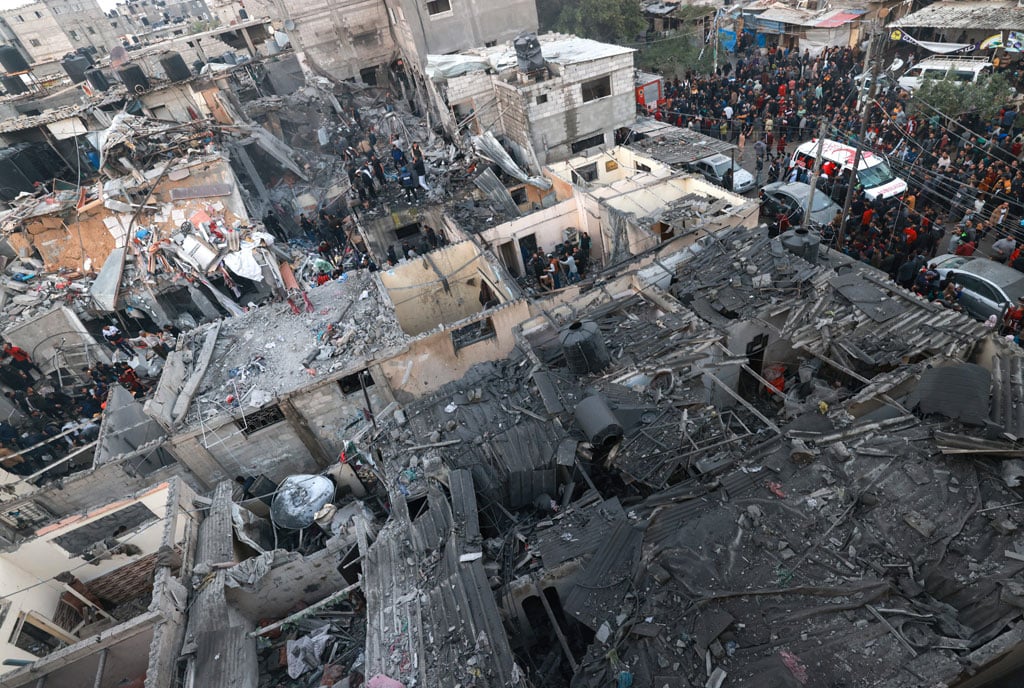UN General Assembly overwhelmingly demands Gaza ceasefire

Members of the United Nations General Assembly vote on a resolution at the resumed 10th Emergency Special Session meeting on the situation in the Occupied Palestinian Territory. Photo/Courtesy
What you need to know:
The body, which includes all 193 UN member nations, voted 153 in favor of the resolution exceeding the 140 or so countries that have routinely backed resolutions condemning Russia for its invasion of Ukraine
The UN General Assembly overwhelmingly passed a non-binding resolution Tuesday demanding a ceasefire in Gaza taking the lead from the paralyzed Security Council, and piling pressure on Israel and Washington.
The body, which includes all 193 UN member nations, voted 153 in favor of the resolution exceeding the 140 or so countries that have routinely backed resolutions condemning Russia for its invasion of Ukraine.
Ten countries including the United States and Israel voted against, while 23 abstained.
The Palestinian envoy to the United Nations Riyad Mansour said the vote marked "a historic day in terms of the powerful message that was sent from the General Assembly."
The vote came after the Security Council responsible for global peace and security has repeatedly failed to make such a call.
On Friday, the United States, Israel's most powerful ally and one of only five permanent members of the Security Council, wielded its veto to halt the latest draft text calling for a truce.
The Council took more than a month after the start of the war between Israel and Hamas militants to speak out and it did so with a weak voice, calling in mid-November after four rejected texts for humanitarian "pauses" in the conflict.
"These tragic attempts are a despicable sign of double standards," Egypt's ambassador to the UN Osama Mahmoud Abdelkhalek Mahmoud said of Washington's efforts to provide Israel diplomatic cover ahead of the vote in the General Assembly.
UN Secretary-General Antonio Guterres has warned of a looming "complete breakdown of public order" in the besieged Gaza Strip.
Many countries and human rights organizations condemned last Friday's Security Council failure, and Guterres on Sunday described the Council's authority and credibility as "undermined."
"We agree the humanitarian situation in Gaza is dire," said Washington's ambassador to the UN Linda Thomas-Greenfield ahead of Tuesday's vote.
"It's the diplomacy that the United States is engaging in on the ground that made that week-long humanitarian pause possible," she said, referring to the only lull in the fighting so far, which took place last month.
Thomas-Greenfield urged countries to back an amendment to Tuesday's resolution that would have condemned Hamas, but that was voted down.
She also called on Israel "to avoid mass displacement of civilians in the south of Gaza," but said Israel was pursuing "legitimate military objectives."
Ahead of the vote, Israel's representative to the UN Gilad Erdan decried what he said was a "hypocritical resolution."
"Not only does it fail to condemn Hamas for its crimes against humanity it doesn't mention Hamas at all," he said.
'Catastrophic'
Israeli air and land attacks continue to pummel Gaza, more than two months after the bloody and unprecedented attack perpetrated by Hamas fighters on Israeli soil on October 7.
Some 1,200 Israelis were killed in the initial attack, while the Hamas-run health ministry in Gaza says more than 18,400 Palestinians have died in Israel's bombardment since.
Arab countries had called for the new special session of the General Assembly, seeking to build pressure just after a visit to the Rafah border point by more than a dozen Security Council ambassadors.
The text that was passed on Tuesday largely reproduced the resolution blocked in the Council on Friday by the United States.
Expressing concern at the "catastrophic humanitarian situation in the Gaza Strip," it "demands an immediate humanitarian ceasefire," and calls for the protection of civilians, humanitarian access, and the "immediate and unconditional" release of all hostages.
Ahead of vote, the prime ministers of Australia, Canada and New Zealand close allies of Israel as well as the United States said in a joint statement that "we are alarmed at the diminishing safe space for civilians in Gaza."
"The price of defeating Hamas cannot be the continuous suffering of all Palestinian civilians," they said.





